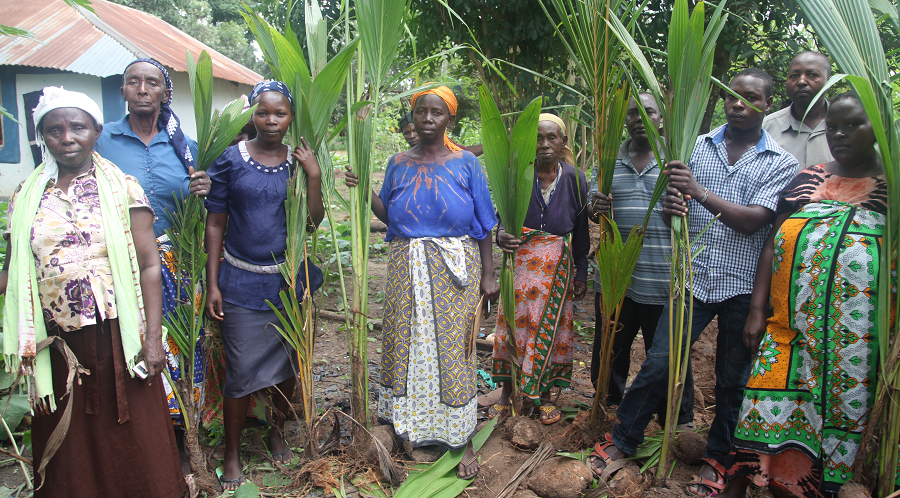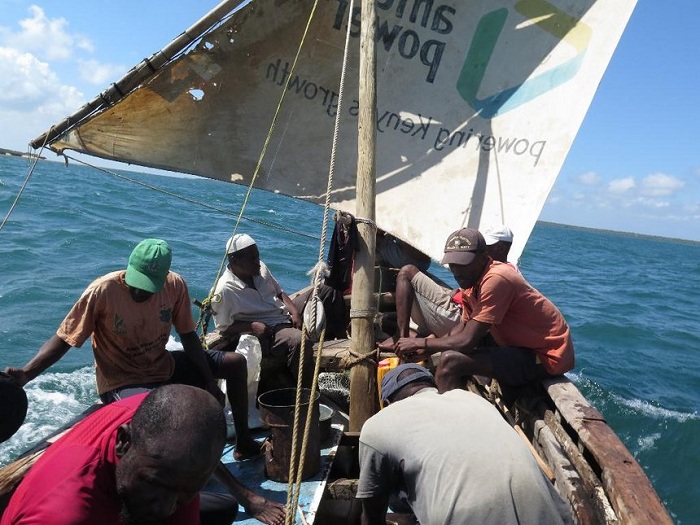
Kwale, KENYA: Community groups in Mafisini, Mivumoni, Eshu and Mwachande in Msambweni Sub-County have received a total of 20,000 coconut seedlings in a bid to promote coconut farming in the area.
The project which is sponsored by Base Titanium (“Base”) saw the area residents receiving seedlings worth sh 3 million in Mafisini, Msambweni purchased from the Mivumoni Boda Boda Youth Group as part of its livelihoods programmes.
The programme is designed to create an additional source of income for members of the youth group.
During the seedling handover on Thursday, Base Titanium’s Community Programmes Superintendent, Mwanaharusi Khamis urged the community members to embrace coconut farming for it’s nutritional and financial benefits.
“Coconut farming has been in decline over the years and hopefully these seedlings will revive this lucrative farming practice, as coconut water alone has been recognized for its nutritional qualities. We at Base will support with the necessary training to ensure successful harvests.” Said Mwanaharusi Khamis.
She added that they will provide the necessary tools and training to ensure successful farming practices and harvests and post-harvest management.
“Base Titanium’s community programmes are closely aligned with the Kwale County Integrated Development Plan and partner with the county government to ensure development priorities are met.” Added Ms. Khamis.
Coconut trees have been known worldwide for being highly versatile; providing nutritional benefits and materials for construction, thus providing alternative and innovative sources of income for growers.
The national government has earmarked sh. 500 million for the revitalization of the coconut industry at the Coast to increase livelihoods and boost economic development.
The establishment of Kenya Coconut Development Authority (KCDA) in July 2008 and government’s move to classify the coconut tree as a “special crop” giving it the same status like coffee and tea, is expected to revive the sector.
KCDA has since been transformed to Nuts and Oil Crops Directorate (NOCD) under the agricultural regulator, Agriculture, Fisheries and Food Authority.
According to NOCD, Coconut produces over 100 byproducts with the potential to generate over Sh.13 billion annually, which represents 0.4 percent to the country’s Gross Domestic Product (GDP) against the current production worth sh. 3.2 billion.















